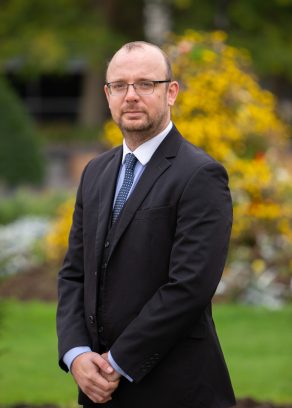
Frequently Asked Questions

When can I claim compensation?
If you have been injured physically or psychologically by a healthcare practitioner’s (doctor, nurse, midwife, dentist, health visitor etc.) negligence, you may be able to claim compensation. If you are not sure whether to try to claim compensation, seek advice from Williamsons Solicitors who offer a free initial interview.
What can I claim compensation for?
You can claim compensation for any injuries and financial losses that you can prove were caused as a result of the negligent treatment, together with any expenses you have incurred, which would not have incurred had the treatment provided not been negligent.
How do I find the right solicitor?
You should use a local solicitor who specialises in the field of clinical negligence; they will understand the medical and legal issues. The Clinical Negligence Department of Williamsons Solicitors is approved by the Legal Services Commission and Action against Medical Accidents (AvMA), and by the Law Society’s accreditation panel.
Are there any time limits to bring a claim?
In general, you must bring a claim for clinical negligence within three years from either:
- the date of the treatment that caused your injury; or
- the first date you could have reasonably discovered that you had suffered an injury wrongfully (date of knowledge).
However, there are exceptions to the three-year time limit for children under 18 and those who cannot manage their own affairs because of a mental disability. In certain circumstances, a Judge may allow somebody to bring a claim after the three-year time limit.
How do I fund any claim?
There are several different ways to cover the legal costs, including;
- Legal Aid, although this is now only available for children who have suffered severe neurological injury at birth, or within 8 weeks of birth, and for advice and representation at an inquest in certain circumstances.
- Legal expenses insurance
- No win – No fee agreements – If it is considered the claim has a reasonable chance of success, Williamsons Solicitors often pursue cases in this way
- Trade union help
How will a Solicitor assess my case?
When you first speak with a solicitor, they will make an assessment to decide whether they want to take on your case, based on how strong your case is. The Solicitor will base their decision on:
1. What happened, particularly everything you can tell them;
2. Your medical records, if you have them;
3. Any complaints letters or other papers;
4. How much your claim could be worth; and
5. The medical and legal issues.
What do I have to prove to obtain compensation?
You must prove two things:
- That the care you received was below the standard that you could reasonably expect from a competent healthcare professional practising in that area of medicine (breach of duty); and
- That you have probably suffered a physical or psychological injury as a result of the negligent act/omission (causation).
How much compensation will I get?
It is difficult to say at the outset of a claim what the likely damages will be. The amount of damages depends on a number of factors including:
1. The nature and significance of the injury;
2. Whether the injury has long-term or short-term effects;
3. Whether you have been unable to work as a result of the injury.
4. Whether any care has been provided, or is likely to be required in the future.
Who pays for my claim?
There are a number of ways to fund Clinical Negligence Claims, as follows:
Pre-existing legal expenses insurance – which is often found on home insurance policies;
Public Funding (previously known as Legal Aid) – Public Funding is available for a limited type of clinical negligence matter; and you would need to be financially eligible. This form of funding is generally only available to children injured in the first 8 weeks of his/her life.
Conditional Fee Agreements – Otherwise known as No Win, No Fee Agreements – this can initially be entered with/without an After the Event Insurance policy in place (After the Event insurance is an insurance against items not covered by the Conditional Fee Agreement). Whether such a policy will be available to you will depend on the prospects of success of your claim at the outset.
We will always discuss with you the best funding option available to you and fully explain everything. If your claim is successful, most of your legal costs will be payable by the Defendant.
How long will it take?
This can vary significantly from case to case. Once funding has been arranged, we anticipate that the initial investigations will take between six-to-nine months. During this time we will obtain your medical records, have them collated and a chronology of your clinical history drafted, and, if appropriate, forward them to an appropriate expert to prepare a report considering the issues in your case. At that time we would hope to be in a position to advise you as to whether your claim can be pursued further.
If supportive expert evidence is obtained, we prepare a Letter of Claim to the Defendant; this will outline all the allegations of negligence. The Defendant then has four months to provide a detailed response and advise as to whether liability is admitted or denied. If liability is admitted, we can take steps to settle your case – this usually takes around 12 – 18 months into your claim. If liability is denied and you claim has justifiable merits, we will commence your claim with the court and prepare for trial. If your case proceeds to trial, it is likely that your case will take around 24 – 30 months to conclude. However, your case could settle at any time up until trial.
Do I have to go to Court?
The short answer to this is:
Yes – If your case proceeds to trial.
No – If your case does not proceed to trial.
Very few clinical negligence cases proceed to trial, in the event that a trial is necessary, our team will support you throughout the court process.
Is it true that all Solicitors are difficult to talk to?
We don’t think so; all of the Solicitors in the Clinical Negligence department are approachable and friendly. We fight for all our clients to make sure that they get the very best outcome possible. However, we never lose sight of the personal difficulties that often accompany any claim.
Are there any time limits?
Under UK law there are time limits for making a claim for clinical negligence. Generally the rule is that a claim must be made within three years of the date of the incident OR the date of knowledge, whichever is the later. However, where the Claimant is a child, the three years doesn’t start to run until their 18th birthday and therefore they have until their 21st birthday to make a claim. Where the individual does not sufficient mental capacity (as defined by the Mental Health Act), the three years does not start to run until they acquire the necessary mental capacity, therefore if they never gain mental capacity the limitation period will not apply to them.
Whilst three years may sound like a long time investigations into clinical negligence matters do take time, and therefore, if you think you have a claim it is best to make enquiries earlier, rather than later.
How do I know which Solicitor to use?
There are many law firms that practice in the area of clinical negligence, however not all Solicitors are recognised specialist clinical negligence practitioners. To be certain that your Solicitor has specialist clinical negligence expertise you should ask whether they are a member of a specialist panel. Such panels include:
AvMA – Action against Medical Accidents
The Law Society – Clinical Negligence Accreditation Scheme
To become a member of the above panels the Solicitor has to demonstrate that they have the necessary experience, providing they satisfy the criteria they will be granted membership that recognises their specialist knowledge in the area of clinical negligence.
Mr Wayne Walker, Solicitor, Head of Clinical Negligence department at Williamsons.
Mr Nick Gray, Solicitor, member of The Law Society’s Panel of Clinical Negligence specialist Solicitors.
Mrs Sarah Jackson, Solicitor at Williamsons.
Mrs Sarah Webster, Solicitor at Williamsons.
Is it true that all doctors stick together and you never win a case?
No, if this were the case no claim for clinical negligence would succeed. However, it is vitally important to use the correct experts to advise on each case. We are very proud of the quality and quantity of experts that we use; our years of experience enable us to select the best expert for each case.
Should I use the solicitor closest to me, or the one that advertises on the radio/television?
Neither. One of the most important decisions that you will need to make is to identify the most experienced Solicitor to act for you. These types of claims are very complicated and technical; they require a solicitor who knows what he/she is doing. Don’t be afraid to ask questions, if the Solicitor has nothing to hide he/she will answer these honestly.
I have been told that “No win, No Fee” is the only sensible way to pursue a clinical negligence case. Is this true?
The answer to this very much depends upon your personal circumstances. Some Solicitors are not allowed to carry out Legal Aid work, so they don’t investigate if a client would qualify for this. Williamsons is one of the very few approved firms in Hull that is able to run Legal Aid (now known as Public Funding) cases. We can therefore offer you a complete service.
My doctor told me that what has happened to me is “just one of those things”. Shall I look into it any further?
Yes, it is usually very difficult to know at the beginning if any claim will be successful. Most doctors are reluctant to encourage people to look into bringing a legal claim, but they are not personally affected by the medical error made. At the end of the day, do you want to ask yourself in the future “what if I had done something about it, when I had the chance?” It is hoped that with the newly enacted “Duty of Candor” the medical/nursing profession will be a lot more candid and open about their mistakes in future, but this can by no means be guaranteed.




